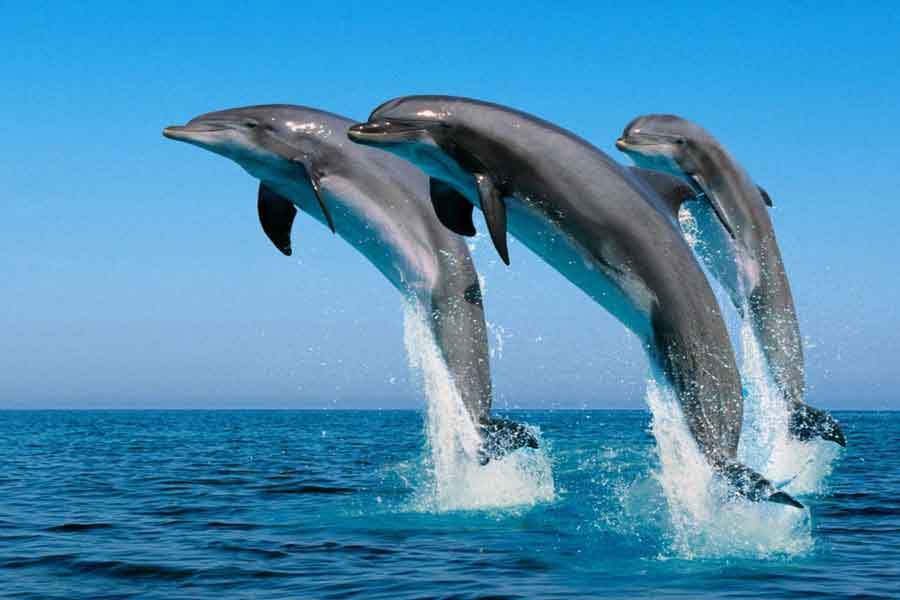
Many cetaceans have relatively large and complex brains, but does that make them intelligent? Even in humans, «intelligence» is a very elusive term. It is often associated with the capacity to learn, to know, and to analyze using reason and judgment.
To answer this question, not only behavioral evidence has been analyzed but also the structures of the nervous system. A simple comparison of the brains of a dolphin and a human raises suspicions about the high level of intelligence in cetaceans. Not only is the dolphin’s brain larger, in proportion to body size, than that of a human, but it also exhibits greater complexity. The cortex, the cerebral layer where higher intellectual faculties reside, appears to be more extensive and intricately folded, with at least twice the number of convolutions. Additionally, the number of neurons in dolphins is at least fifty percent greater. Some experts believe that these animals may possess an intellect that is greater than that of humans but distinctly different.
On the other hand, the dolphins’ remarkable capacity for learning is well-known. They teach their offspring how to obtain food and defend themselves against predators. Even dolphins in captivity can teach others the «tricks» they have learned during their training, which are simply a means to obtain food.
Perhaps the mistake lies in analyzing dolphins in search of «human intelligence,» an intelligence capable of reshaping the environment to meet our needs (such as turning a stone into a house). It is difficult for us to understand an animal that adapts to its environment without altering it for its own benefit but fully utilizing it. In this regard, we could say that dolphins have demonstrated greater intelligence than human beings. However, it is surprising to learn that dolphins are incapable of escaping from a net, for which they would only need a simple leap (see Secret Number 3).
Polynesians say that dolphins are the «memory of the sea.» If that is the case, why do they continue to approach us? Why do they seek our contact after so much killing? Those of us who have been in the water with a group of dolphins, listening to their communication as they swim around us and interact with each other, have had the sensation of being observed rather than being «the observer.» Undoubtedly, there are still many questions to be answered about a frequently visited yet poorly understood friend. Perhaps one day, we will be surprised to learn that dolphins know something that we do not yet know. Perhaps it is time to start learning.
«One cannot defend what one does not love, and one cannot love what one does not know.»

